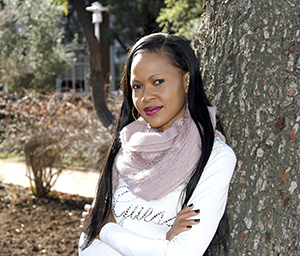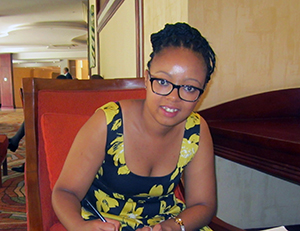Latest News Archive
Please select Category, Year, and then Month to display items
03 March 2021
|
Story Giselle Baillie
|
Photo Supplied
_web.jpg?sfvrsn=987e6620_1) Residence members who led the project, included:
Bohlokwa Rantja, the Residence Prime, and Transformation Committee members Nsuku Mutemela, Ofentse Motlakeng, Phindile Tjale, Madinku Mabala, Mmapopi Motshoso, Karabo Shuping, and Tagane Sekete.
Residence members who led the project, included:
Bohlokwa Rantja, the Residence Prime, and Transformation Committee members Nsuku Mutemela, Ofentse Motlakeng, Phindile Tjale, Madinku Mabala, Mmapopi Motshoso, Karabo Shuping, and Tagane Sekete.
The University of the Free State (UFS) Council approved and adopted Lehakwe House as the new name for the
NJ van der Merwe residence on the Bloemfontein Campus. The approval on 26 November 2020 followed a lengthy process of deliberation, consultation, and public engagement that has taken place since November 2019 and is aligned with the UFS Policy on Naming and Renaming. The name-change process was initiated by the Prime and Transformation Committee of the residence, guided by the
Unit for Institutional Change and Social Justice and supported by a multi-stakeholder committee representative of the residence, the Housing and Residence Affairs Office, the Department of Student Affairs, the Student Representative Council, and alumni.
Lehakwe – a precious gem
Following a lengthy evaluation process of the names submitted through a public voting and recommendation platform in July 2020, ‘Lehakwe’ – a Sesotho word referring to a ‘precious gem’ – emerged as the front runner. As many current and past members of the residence attest, this womxn’s residence has come to occupy a significant space within the hearts and minds of UFS students and the UFS community, given that its spirit has always been closely aligned with the constitutional values of dignity, equality, and freedom and with the human values of ubuntu. In this vein, the new name of ‘Lehakwe’ presents a consolidation of constitutional and university values into the day-to-day thinking, learning, living, and legacy spaces of students, as well as everyone who interacts and engages with the UFS.
Trauma, Forgiveness, and Reconciliation Studies attracts global attention
2016-06-27

Lerato Machetela is on her way to
Ghent University in Belgium where
she will spend 10 months working
alongside experts in the field of
historical trauma.
Photo: Eugene Seegers
Research excellence is one of the major driving forces at the core of the University of the Free State (UFS). This striving for academic distinction has found embodiment within Trauma, Forgiveness, and Reconciliation (TFR) Studies. Headed by Research Fellow and Senior Research Professor Pumla Gobodo-Madikizela, the research unit is raking in achievements consistently.
Cornell University Distinguished African Scholar Award
Leading by example, Prof Gobodo-Madikizela received the prestigious 2016 Distinguished African Scholar Award from Cornell University recently. Being honoured with this award affirms an unusual depth of knowledge and experience in a field related to the recipient’s own work. Through this award, Prof Gobodo-Madikizela is now also affiliated with the Institute for African Development and the Psychology Department at Cornell University.
Ghent University fellowship in historical trauma
Another member of TFR has caught international attention. Lerato Machetela – a PhD student at the research unit – received an invitation from scholars at Ghent University in Belgium. Machetela will leave in September, where she will spend ten months in Ghent with experts in the field of historical trauma. She will be affiliated to their university’s Cultural Memory Studies Initiative and the Psychology Department. When Machetela submitted her PhD proposal on transgenerational transmisison of trauma among the youth in Jagersfontein to the UFS Psychology Department panel, “it was hailed as a unique project, and a first for the department,” Prof Gobodo-Madikizela says.

Naleli Morojele conducting the research
in Rwanda that has formed the basis of
her new book, Women Political Leaders
in Rwanda and South Africa: Narratives
of Triumph and Loss.
Book explores triumph and loss of female political leaders
TFR cultivates thriving authors actively, the latest being Naleli Morojele, who is pursuing a PhD in the field of Political Studies. Soon, Morojele will be launching her book, Women Political Leaders in Rwanda and South Africa: Narratives of Triumph and Loss. Through the stories of significant female Rwandan and South African leaders, the reader gains insight into these women’s early-life experiences, struggles, and successes. Perhaps even more pertinently, Morojele’s book also exposes the ways in which gender inequality still works to smother their roles as citizens and politicians.